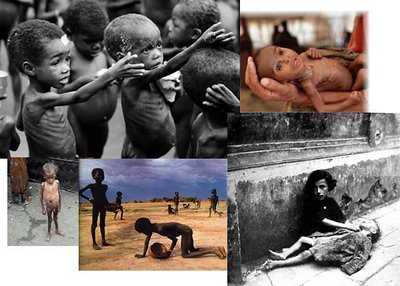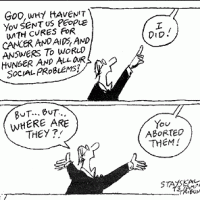 A few years ago my room-mates and I watched a very unflattering foreign documentary supposedly about life in Lagos. It was as typical of most stories about Africa that one finds in mainstream Western news media – a veritable catalogue of woes. The visuals consisted almost exclusively of swampy slums with houses on stilts; there was hardly any information on the less grim aspects of the city. One of the scenes featured an interview with an adult male resident of a Lagos slum, conducted, dramatically, whilst the man excreted in the lagoon. I remember recoiling in vicarious shame at the rebarbative sight – the same way I presume parents must feel when publicly embarrassed by an ill-mannered child. In many ways it was depressing to watch, this depiction of Lagos as the desolate habitation of a forgotten people. I remember the heated arguments that broke out when a room-mate spoke out in defence of the documentary and called it an authentic depiction of the realities of life in Lagos.
A few years ago my room-mates and I watched a very unflattering foreign documentary supposedly about life in Lagos. It was as typical of most stories about Africa that one finds in mainstream Western news media – a veritable catalogue of woes. The visuals consisted almost exclusively of swampy slums with houses on stilts; there was hardly any information on the less grim aspects of the city. One of the scenes featured an interview with an adult male resident of a Lagos slum, conducted, dramatically, whilst the man excreted in the lagoon. I remember recoiling in vicarious shame at the rebarbative sight – the same way I presume parents must feel when publicly embarrassed by an ill-mannered child. In many ways it was depressing to watch, this depiction of Lagos as the desolate habitation of a forgotten people. I remember the heated arguments that broke out when a room-mate spoke out in defence of the documentary and called it an authentic depiction of the realities of life in Lagos.
I was not alone in my embarrassment. Perception is vital in a world that is fast shrinking into a global village. More importantly, perhaps, is the subcutaneous desire for validation that lies at the heart of the African psyche. This trait was most manifest when some Nigerians in Lagos wore aso-ebi to celebrate Barak Obama’s electoral victory in faraway America and walked with a new swagger that seemed to say ‘’yes, our son is in the White House.’’
There are some Africans who are fed up with the other-ness of our continent, who argue against the reductionist view that Africa is synonymous with want and poverty, tragedy and strife. There are some who insist – and they are correct – that there are African children who drink potable water, who attend school, who have never lived in refugee camps and whose families have not been displaced by civil war. There are some who take offence at the racist portrayals of Africa in European literature or the negative stereotypes about the continent in the Western news media. There are yet others who regret that Africa receives hand-outs (foreign aid) from developed nations, that she carries a beggar’s bowl with her to international summits. Some even oppose as patronising the much-publicised adoption of African orphans by Hollywood stars. To these ones Africa is not one colossal tragedy. It is a land that represents courage and strength as well as the triumph of hope and survival. This view of the African experience is not self-indulgent. It is legitimate.
No one doubts that some of the unflattering stories about Africa or Nigeria for that matter are true. Anyone who has walked through the winding dirt roads of Ilaje in Lagos state, for instance, surely has a hint of what it must feel like to journey through a wilderness. Ilaje’s people are in many ways, casualties of Nigeria’s misfortune. This is a neighbourhood without clean water, electricity or paved roads; a place where one can barely eke out a meaningful existence. Its fetid air encircles one like the embrace of an unwanted guest. Hens peck at the dust on streets that are generously strewn with refuse. Here are a people who live on the fringe of society, a race forgotten by the very leaders who were elected to serve them. Nigeria in many ways represents an oxymoron; a rich country of poor people, a remarkable contrast of stark deprivation sitting beside stupendous wealth. The lives of millions of our compatriots are touched daily by misery and want, their self-dignity eroded by poverty. Some of the worries of the privileged few may seem frivolous in comparison to the cares of people for whom the Blackberry and i-Pad represent a remote existence. The view that Africa is about genocide and corruption as well as famine and tragedy may be unflattering; it is nonetheless legitimate.
In a sense we are all victims of Africa’s troubled past in many ways. We live in failed African states that are afflicted by corrupt and unresponsive governments as well as disillusioned and apathetic followership. History, it is said, is merely an account of past events as recounted by conquerors. The ability of the Western news media to define our collective identity through stories is perhaps indicative of its power and influence. Notwithstanding, the time has come for stories of Africa told by Africans to be heard. We must appropriate our own stories and tell them as they are. We must not deny or obliterate the unfavourable parts of the African experience, as to do that will be to indulge in self-deceit. Rather we must acknowledge that Africa’s poverty sits alongside her wealth; we must relate both the bitter and the sweet. We must achieve what Chinua Achebe calls a balance of stories. After all, Africans best understand Africa. We know that although millions of Africans lack material wealth they possess a sense of integrity. Ilaje people (for instance) live, and love, worship God and go about their honest businesses with a vibrancy and self-assuredness that words can hardly describe. As stakeholders it is incumbent on us to turn aside from our own struggles and attend to those of others.
If we neglect to go first into our slums, alleys, red-light districts and refugee camps the Western news media will get there before us. If we fail to do right by our own we must not grumble when our condition serves as fodder for some curious anthropological experiment or as an excuse to assuage a guilt-ridden European conscience. We may dismiss as a publicity stunt Madonna’s adoption of a Malawian child (and the point is arguable) yet we erode our position if we fail to lend a hand to the less well-off amongst us. If Africa neglects to tell her own stories they will be appropriated and told by CNN or the BBC or Al-Jazeera or Reuters, and they will more or less dwell heavily on the tragic – Niger Delta, Boko Haram, Idi Amin, Rwanda and Darfur or on the light-hearted – safaris, wildlife, football and Nollywood. Stereotypes about our continent may never disappear; ultimately they are a mechanism through which people process unfamiliar information. Thus, foreigners (including the well-meaning) may never get to know Africa well enough to be entrusted with the delicate task of telling her stories.
Notwithstanding, we do not feel a need to apologise for who we are. Africa is the sum of the good and the bad, the bitter and the sweet. We owe it to ourselves as well as to posterity to realise that our African-ness is such a complex, multifarious and variegated experience; it is a tapestry of different cloths. As the Igbo wise saying goes: ‘’When one thing stands, another stands beside it.’’
Ugochukwu R. Ezeh

i hope they get well treated and live like me in tasmania because i wish they could live the way i do and i feel sorry for them .
[…] on a blog called Young African Research Arena run by students of the University of Lagos. In this blog post, the writer questions representing Africa with these types of images “typical of most stories […]